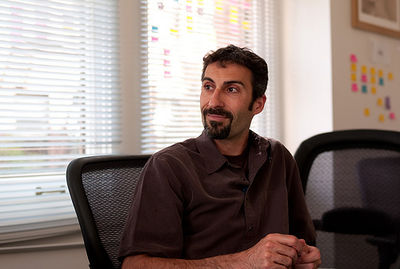Introduction
| Course dashboard for #OCL4Ed | ||
|---|---|---|
| The right license | Video signpost - Frances Ferreira | Introduction | The essential freedoms | Free cultural works | FCW approved licenses | Technology issues | E-Activity - 3rd Learning reflection | |
| “ | Doing the right thing is more important than doing things right. | ” |
| —Peter Drucker | ||

The purpose of this tutorial is to provide information to assist educators and educational institutions to make informed decisions when choosing open content licenses. For the purposes of this tutorial, our discussions are limited to the Creative Commons set of licenses.
The structure of this tutorial is informed by two generic schools of thought around license choices, that is:
- Free cultural works approved licenses
- Other licenses (which do not meet the requirements of free cultural works approved content).
We recommend that readers have a reasonable knowledge and understanding of the:
|
Overview
|
How do I know which license to use? That depends:
These are the kinds of questions you should be asking yourself. Is there a recommended license for OER? Yes. You should use the Creative Commons Attribution 3.0 (CC BY) license, whenever possible. Only the CC BY license endows OER with all of the fundamental attributes (e.g., freedom to share and combine resources while giving the author credit) which are important for resources in a global learning commons. While any CC license is better than none, the more restrictive licenses usually affect the usability of your OER in ways that you may not want or expect. We would urge you to review the goals and constraints of your organisation regarding the OER you produce, and to only apply more restrictive licensing when fully justified. Reflection adapted from Open Educational Resources and Creative Commons Licensing |
Your personal license recommendation
|
Ahrash Bissell says "When sharing, simple is best. Use CC-BY." Do you agree with Ahrash's recommendation. Post your contribution on microblogs and include the hash tag "#OCL4Ed" in your post, for example, I agree (disagree). CC-BY is (isn't) best because .... #OCL4Ed:
|
